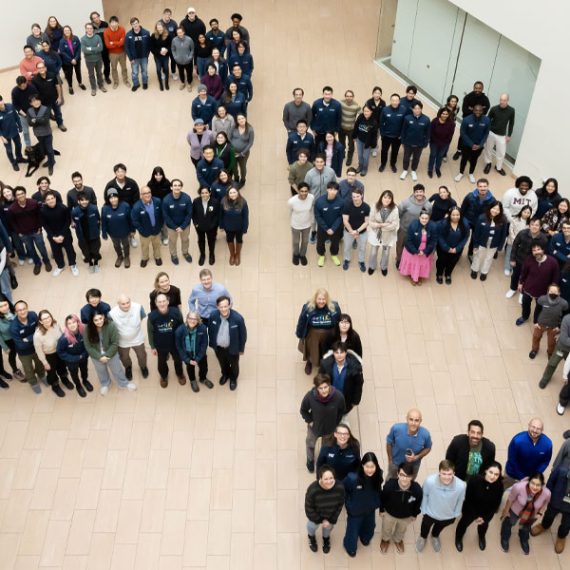McGovern Institute Scolnick Prize awarded to David Julius
The McGovern Institute for Brain Research at MIT announced today that David Julius, a physiologist at the University of California at San Francisco (UCSF), will be the 2007 recipient of the Edward M. Scolnick Prize in Neuroscience. The Scolnick prize is awarded each year by the McGovern Institute to recognize an individual who has made outstanding advances in the field of neuroscience. Dr. Julius, who a is a professor and vice chair of the Department of Cellular and Molecular Pharmacology at USCF, receives the 2007 prize for his discovery of the molecular receptors for temperature and inflammatory pain.
“David Julius has transformed our understanding of temperature perception and pain”, says McGovern Institute director Robert Desimone. “His work is of great importance for basic neuroscience and medicine, and we are very pleased to honor his groundbreaking contributions through this award.”
It has been known for many years that capsaicin, the substance that gives chili peppers their hot taste, interacts specifically with pain sensitive neurons. Building on this observation in a landmark 1997 paper, Dr. Julius was able to identify the molecular receptor for capsaicin and to demonstrate that it is specifically expressed in a subset of sensory neurons, now recognized as key components of the pain pathway. He also showed that the receptor, known as TRPV1, is a heat-sensitive ion channel, with a temperature threshold that corresponds with the point at which we start to perceive warm stimuli as painful.
Dr. Julius has continued to study TRPV1 and related channels, and in more recent work has identified the receptor for menthol, a plant-derived substance that produces a cooling sensation. He showed that the menthol receptor responds to cold temperatures, thereby proving that the TRP family of ion channels constitutes the fundamental mechanism for temperature sensation in mammals.
In addition to explaining how we perceive temperature, Dr. Julius has made major contributions to our understanding of pain. By showing that TRP ion channels are activated by a variety of chemicals that are released by inflamed tissue, as well as noxious chemical agents such as spider toxins and mustard oils, Dr. Julius has established these channels as polymodal receptors that allow us to detect, through pain, the presence of inflammation or injury as well as extremes of temperature. His work has had a great impact not only in basic neuroscience but also in the pharmaceutical industry, where TRP channels have emerged as important potential targets for the development of novel analgesic drugs.
The McGovern Institute will award the Scolnick Prize to Dr. Julius on Monday, May 21st, 2007 at 4:00 pm. Dr. Julius will deliver a lecture entitled “From Peppers to Peppermints: Natural Products as Probes of the Pain Pathway”, followed by a reception, at the McGovern Institute in the Brain and Cognitive Sciences Complex, 43 Vassar Street (building 46, room 3002) in Cambridge. The event is free and open to the public.
###
About the Edward M. Scolnick Prize in Neuroscience
The Scolnick Prize, awarded annually by the McGovern Institute, is named in honor of Dr. Edward M. Scolnick who stepped down as President of Merck Research Laboratories in December 2002, after holding Merck’s top research post for 17 years. Dr Scolnick is now an associate member at the Broad Institute of MIT and Harvard, and also serves as a member of the McGovern Institute’s governing board. The prize, which is endowed through a gift from Merck to the McGovern Institute, consists of a $50,000 award, plus an inscribed gift and is given each year to one recipient.
About the McGovern Institute for Brain Research at MIT
The McGovern Institute is a research and teaching institute committed to advancing human understanding and communications. The goal of the McGovern Institute is to investigate and ultimately understand the biological basis of all higher brain function in humans. The McGovern Institute conducts integrated research in neuroscience, genetic and cellular neurobiology, cognitive science, computation, and related areas.
By determining how the brain works, from the level of gene expression in individual neurons to the interrelationships between complex neural networks, the McGovern Institute’s efforts work to improve human health, discover the basis of learning and recognition, and enhance education and communication. The McGovern Institute contributes to the most basic knowledge of the fundamental mysteries of human awareness, decisions, and actions.
For additional information, please go to http://web.mit.edu/mcgovern.




